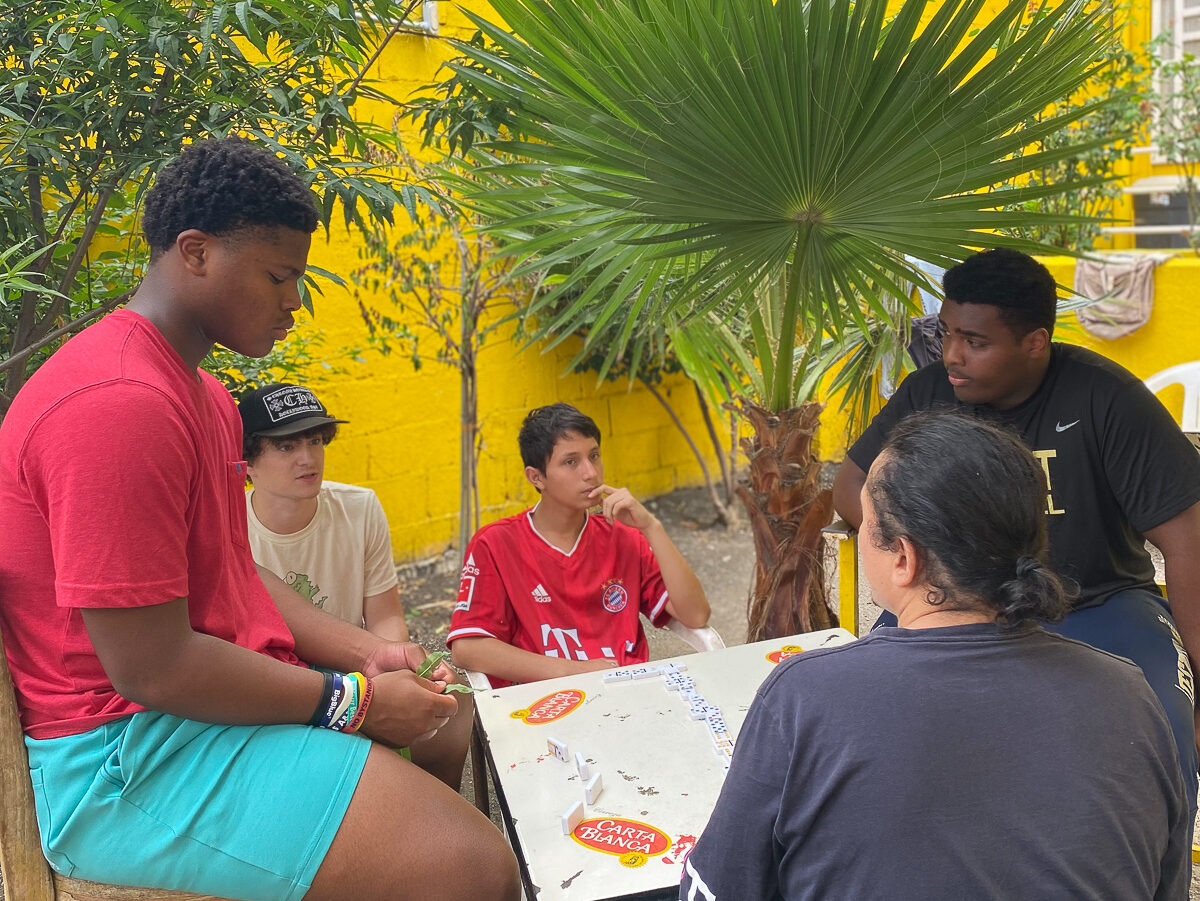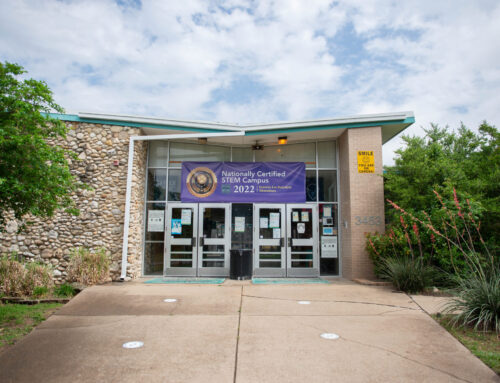When a typical teen tells you they spent their summer in Mexico, they’re talking beach-filled days and resort-filled nights. Twelve Jesuit College Preparatory School of Dallas students, however, spent part of their summer playing bingo, learning about the Monterrey culture and talking to families affected by migration.
“This is the foundation of what we’re bringing to them at Jesuit, which is how to be a man for others through Catholic social teaching,” says Claire Moore, a coordinator in the community service and social justice office at Jesuit.
The students are part of a program in Casa San Nicolas, a suburb of Monterrey, Mexico, where they meet new people, provide meals and supplies to migrant families, prepare clients for job interviews, support child care and organize activities.
“It’s important for these young men to see, learn and experience life in perspective outside of a metropolitan city,” Moore says. “What we’re doing is formative so they can see and learn how they may be able to be a part of life in a whole different way and for that to be a part of their life.”
Jesuit students who volunteer to go to Monterrey take two trips each year: one during the summer and another trip before Thanksgiving. Each trip is advertised to Jesuit students and parents, and students apply to show their interest. Students must be enrolled in a Spanish course, speak conversational Spanish or be able to enroll in an intensive Spanish course prior to the trip. Students also have to have a valid passport and be fully vaccinated against COVID–19. These trips go toward the students’ community service hours required for graduation.
This summer, students stayed in a Montessori school close to Casa San Nicolas, where each day is packed with service opportunities for the students. They select a theme for that day’s events before going to the city to spend the morning playing games, reading books or otherwise spending time with participating families. After the students help prepare and pass out lunch, they spend the afternoon distributing necessities to the families until it’s time to serve dinner.
“We’ll clean up, go back to the Montessori where we are staying and take a deep breath, and then they will reflect on the day and those we encountered and how we may see their perspective,” Moore says.
For some students, the trip is a chance to connect with their culture and experience how different life can be just on the other side of the border.
“I immediately felt the connection and desire to go because my mom and her side of the family lived or currently live there,” Cesar Rivera, a junior at Jesuit and recent participant in the program says. “These people helped me understand how there are many others who are going through the same struggles and are doing their best to cross the border and have a better life. This all helped me realize that I am truly blessed with the life I have, and made me appreciate the things I have in my life.”









